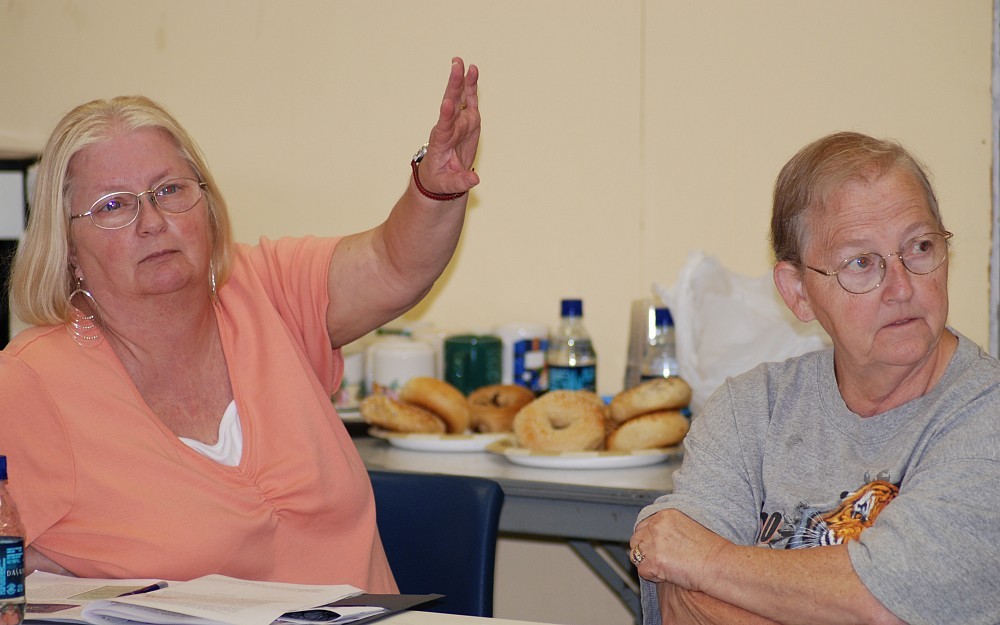
Study Educates Ethnic Groups on Environment, Genetic Health Risks
CINCINNATIHand-me-downs are common in families.
But it isnt always as simple as passing along an outgrown sweater or an antique chest of drawers.
Some of these hand-me-downs are an unwelcome genetic inheritance. Others are deteriorated neighborhoods and housing.
So, UC researchers have been working to educate at-risk communities about how genetics and environment work together to shape health.
Medical anthropologist C. Jeff Jacobson, PhD, and colleagues in the environmental health department and the Greater Cincinnati Occupational Health Center are developing curricula to teach community residents about interactions between environmental exposures and common, inherited illnesses.
The program is supported by a five-year grant from the National Institute of Environmental Health Studies.
We mainly focus on African-American, Appalachian and Latino populations and are tailoring the curricula for each group, said Jacobson, who is also a research assistant professor in the department of family medicine and an assistant professor in the department of anthropology.
He said African-Americans receive general health lessons that include a section on sickle-cell anemia, which is more common in their community, just as Appalachians learn about cystic fibrosis and Latinos, about metabolic syndrome. All groups also receive information on heart disease, asthma and type-2 diabetes.
Jacobson and his group recruited members of each community to serve as educators for these classes.
We found people in each community willing to reach out and teach others about problems in their environments that can further affect their health, Jacobson said.
Participants take a two-and-a-half hour class, during which they watch films, read materials and play games focused not only on environmental health, but also on health education relevant to their family tree.
People have to know what genetic ailments their relatives suffered from in order to keep themselves healthy, Jacobson said. This doesnt necessarily mean that because mom and dad have a serious illness its an automatic diagnosis, but being aware is a good prevention tool, particularly when were talking about heart disease, asthma, diabetes and cancers.
People can do a lot of things to avoid illness, and understanding the environmental, genetic and behavioral risk factors are just a few of them.
So far, Jacobson said, about 170 people have attended the group meetings, and more are planned for the summer and early fall. He hopes to create partnerships with other organizations in Greater Cincinnati to continue this outreach even after the grant expires at the end of this year.
Its important to sow these seeds in peoples minds, he said. Were learning more about how specific environmental exposures interact with genetic inheritance, and as more genetic tests and gene therapies become available, people are facing complex decisions.
If people better understand their exposures and family health history, they may be able to prolong their lives.
Tags
Related Stories
Local 12: Diabetes study focuses on how long blood sugar control...
May 3, 2024
The University of Cincinnati's Robert Cohen spoke with Local 12 about the GRADE study that shows how a new medication needs to be developed to help treat people with type two diabetes.
Local media cover $13.5 million gift benefiting ALS research and...
May 2, 2024
A historic $13.5 million gift from the estate of Hugh H. Hoffman will revolutionize amyotrophic lateral sclerosis (ALS) at the ALS Multidisciplinary Clinic at the University of Cincinnati Gardner Neuroscience Institute.
New York Magazine: Does eating chocolate actually trigger...
May 2, 2024
The University of Cincinnati's Vincent Martin was featured in a New York Magazine/The Cut article discussing the lack of solid evidence that chocolate is a migraine trigger.
